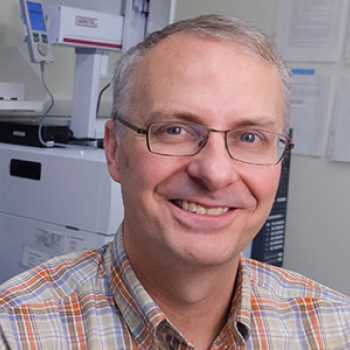
Faculty Title:
Associate Professor of Biology; Associate Director, Koch Institute for Integrative Cancer Research
Department:
- Biology
Room:
76-561
Phone Number:
(617) 715-4471
Email:
Faculty Bio:
Dr. Vander Heiden is an associate professor of biology at MIT and an instructor in medicine at both Harvard Medical School and the Dana-Farber Cancer Institute. He has been a Member of the Scientific Advisory Board at Agios Pharmaceuticals, Inc. since 2008. He received the Burroughs Wellcome Fund Career Award for Medical Scientists in 2009. Dr. Vander Heiden earned his B.S. in Biological Chemistry, M.D. and Ph.D. from the University of Chicago.
Research Areas:
Research Summary:
Recently, there has been a resurgent interest among the scientific community to understand cancer cell metabolism. This has occurred in part because of the growing realization that many of the major oncogenic driver mutations involved in cancer promote nutrient uptake and anabolic metabolism. Our research has focused on the M2 isoform of the glycolytic enzyme pyruvate kinase (PK-M2), which is expressed during embryonic development and at high levels in cancer cells. All tumors and cell lines studied to date express exclusively PK-M2, while normal adult tissues express another isoform of pyruvate kinase. PK-M2 expression is required for aerobic glycolysis. Aerobic glycolysis, also known as the Warburg effect, involves the conversion of glucose into lactate even when oxygen is abundant and is the form of glucose metabolism observed in most cancers. In addition to promoting aerobic glycolysis, PK-M2 appears to be required for human cancer cells to form tumors in vivo. PK-M2 is different from other pyruvate kinase isoforms because it can bind to proteins that are phosphorylated on tyrosine residues in response to cell growth signals. Phosphotyrosine binding negatively regulates enzymatic activity providing a link between cell growth signals and regulation of glycolysis.
Using PK-M2 regulation as a starting point, our laboratory is using biochemical approaches to understand the pathway biochemistry of proliferating cells. Our current efforts have been to test the hypothesis that cell growth signals reprogram metabolism to support the distinct energetic needs of proliferating cells. Unlike normal cells, which rely heavily on ATP to support housekeeping functions, proliferating cells have the additional requirement of duplicating mass. This large synthesis requirement for lipids, amino acids, and nucleotides requires an excess of carbon and reducing equivalents. Metabolic processes in proliferating cells must be reprogrammed to balance ATP production with the production of building blocks required for growth. Efforts to understand how metabolism is reprogrammed to facilitate accumulation of biomass have provided us with new insights into the metabolism of cell proliferation.
We have also constructed mouse models to control the expression of pyruvate kinase isoforms, and thus the way in which glucose is metabolized in vivo. These models have been crossed to various mouse models of cancer to understand how metabolic changes contribute to tumorigenesis and tumor maintenance. We are combining these efforts with novel techniques to image metabolism in vivo. We are also using small molecules that target enzymes important for cancer metabolism to explore novel therapeutic approaches to target tumor cell metabolism for cancer therapy.
